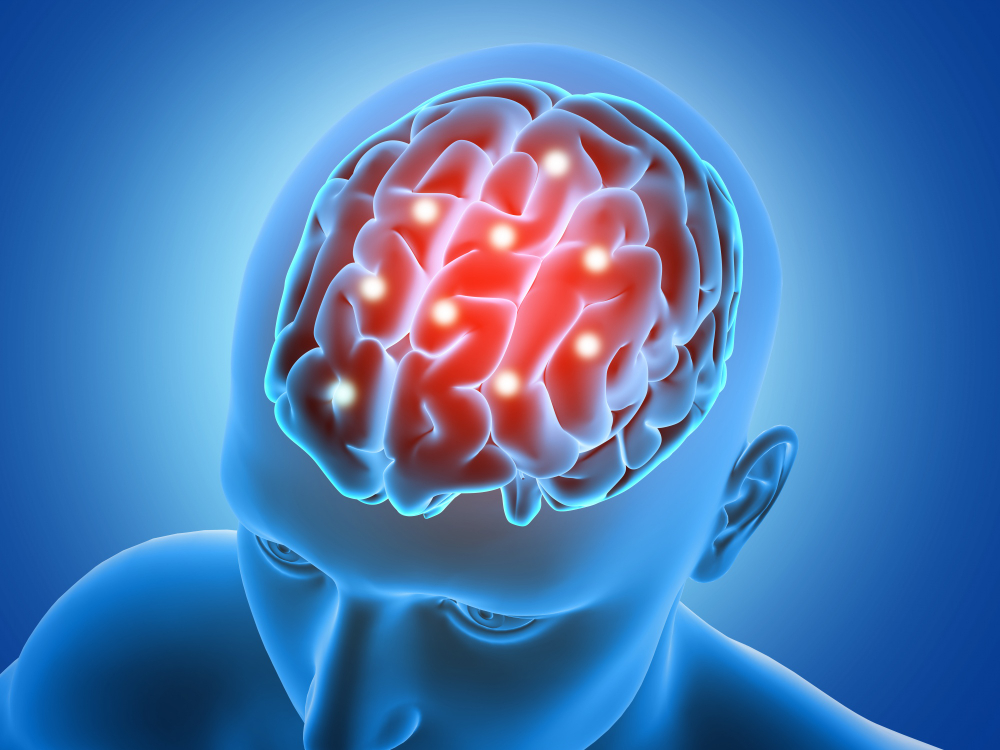Nervous System Disorders

Nervous system disorders are medical conditions that affect the normal functioning of the brain, spinal cord, and peripheral nerves. These disorders can arise from various causes such as genetics, infections, injuries, or degenerative causes.
They encompass several disorders which include stroke, migraine, epilepsy, Alzheimer’s, and more. Treatment options for nervous system disorders ranging from medication and surgery to different types of therapy and supportive care.
Symptoms
Symptoms of nervous system disorders can vary depending on the specific condition. However, some common symptoms associated with nervous system disorders are mentioned below.
- Cognitive Changes: Memory problems, difficulty concentrating, confusion, disorientation, or changes in mental function.
- Motor Problems: Weakness, stiffness in the muscles, tremors, lack of coordination, problems with balance, or paralysis.
- Sensory Changes: Numbness, tingling, pain, sensitivity to touch, temperature, or pressure.
- Speech & Language Difficulties: Slurred speech, difficulty finding words, or problems understanding spoken or written language.
- Vision Changes: Blurred or double vision, partial or complete loss of vision, or involuntary eye movements.
- Hearing Problems: Tinnitus, hearing loss, or sensitivity to sound.
- Headaches or Migraines: Severe or persistent headaches, migraines, or facial pain.
- Seizures or Convulsions: Uncontrolled muscle movements, loss of consciousness, or altered mental state.
- Sleep Disturbances: Insomnia, hypersomnia, excessive sleepiness, or other sleep-related issues.
- Mood Changes: Depression, anxiety, irritability, or other emotional or behavioral changes.
- Fatigue: Persistent or excessive tiredness, lack of energy, or difficulty with physical activities.
- Autonomic Dysfunction: Problems with blood pressure regulation, heart rate, digestion, bladder control, or temperature regulation.

A combination of medical history, physical examination, and specialized tests are typically used to diagnose these disorders. Some common diagnostic approaches are mentioned below.
- Medical History & Physical Examination: Identification of potential nervous system illnesses can be aided by a comprehensive examination, discussion of symptoms, and review of one's own and one's family's medical history.
- Blood Tests: Blood testing can help diagnose infections, inflammation, metabolic abnormalities, or other underlying conditions that may be causing or exacerbating the nervous system’s illness.
- Neurological Examination: In order to find any probable nervous system problems, this examination assesses the patient's mental status, motor and sensory function, reflexes, coordination, and balance.
- Imaging Studies: Imaging studies can help visualize the brain, spinal cord, or nerves to detect structural abnormalities, tumors, or other issues.
- Electromyography & Nerve Conduction Studies: These examinations aid in determining the electrical activity of the muscles in order to assess the condition of the nerves and muscles.
- Electroencephalography: This test monitors electrical activity in the brain.
- Lumbar Puncture: Cerebrospinal fluid from the spinal canal is taken during this treatment in order to be tested for abnormalities that may be impacting the nervous system.
- Genetic Testing: For nervous system disorders with a known genetic basis, genetic testing can help confirm the diagnosis or identify carriers within a family.
- Biopsies: A small sample of nerve tissue may be obtained for further examination to confirm a diagnosis.

The severity of the symptoms, the underlying cause, and the individual ailment all influence the available treatments for nervous system problems.
Some common treatment approaches for nervous system disorders are mentioned below.
- Medications: Various medications can be used to treat symptoms or underlying causes of nervous system disorders specifically targeting neurotransmitter imbalances or other aspects of the disorder.
- Physical Therapy: Physical therapy can help maintain or improve muscle strength in individuals with nervous system disorders.
- Occupational Therapy: Occupational therapists can assist patients in adapting to their environment and developing strategies to perform daily activities more efficiently and comfortably.
- Speech Therapy: For nervous system disorders that affect speech or swallowing, speech therapists can provide guidance on techniques to improve communication and safe swallowing practices.
- Cognitive Rehabilitation: This therapy aims to improve cognitive skills through targeted exercises and strategies.
- Assistive Devices: Braces, orthotics, mobility aids such as wheelchairs, canes, or walkers, or adaptive equipment for daily activities may be recommended to help support weakened muscles, maintain mobility, and improve independence.
- Surgery: In some cases, surgery may be advised to address specific issues related to the nervous system disorder.
- Lifestyle Modifications: Overall health and well-being can be supported by leading a healthy lifestyle that includes a balanced diet, frequent exercise, stress reduction, and enough sleep.
- Experimental Treatments & Clinical Trials: For some nervous system problems, patients who have not responded to traditional medicines or are looking for cutting-edge treatments may have the option to participate in clinical trials or get experimental treatments.

Prevention
Preventing nervous system disorders can be challenging, as some conditions have genetic or unknown causes. However, adopting a healthy lifestyle and taking certain precautions can help reduce the risk of developing some nervous system disorders or minimize their impact.
Some general preventive measures are mentioned below:
- Maintain a Healthy Lifestyle: A resilient neurological system can be supported by eating a balanced diet, engaging in regular exercise, obtaining enough rest, and controlling stress.
- Avoid Smoking & Limit Alcohol Consumption: Avoiding smoking and limiting alcohol intake can help maintain a healthy nervous system.
- Protect your Head: A traumatic brain injury, which can cause long-term neurological problems, can be prevented by wearing a helmet.
- Practice Safe Driving: Following traffic rules, wearing seat belts, and avoiding distractions while driving can help prevent accidents that may result in brain or spinal cord injuries.
- Manage Chronic Conditions: Properly managing chronic health conditions can help prevent complications that may contribute to nervous system disorders.
- Get Vaccinated: Getting vaccinated can help prevent infections that may cause inflammation or damage to the nervous system.
- Regular Check-Ups: Regular medical check-ups can help identify potential risk factors or early signs of nervous system disorders, allowing for prompt intervention and management.
- Prenatal Care & Genetic Counseling: Expectant mothers should seek appropriate prenatal care to reduce the complications that could affect the nervous system of their child. If there is a family history of genetic nervous system disorders, genetic counseling may provide valuable information about potential risks and reproductive options.

